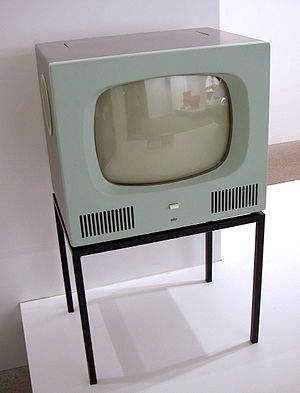The current television business model will fail
By Kristopher A. Nelson
in
June 2009
500 words / 2 min.
Tweet
Share
The television industry is where newspapers were 10 years ago - in denial that they need to change their business model. They have tried, on occasion, to argue that skipping commercials is “stealing” and similar types of arguments. They are, as Henry points out, still making money - so they can afford to ignore the changes. I predict that, as inevitable as the death of their current business is, their attempt to legislate content protections is as inevitable.
Please note that this post is from 2009. Evaluate with care and in light of later events.
Henry Blodget writes in the Silicon Valley Insider that:
Thus far, the TV industry has reacted to these changes [more ways to get simple entertainment at home, new ways to get TV content, fewer limitations on distribution] the way most people would: By trying to port its existing model to the new world and maintain its hold on power and money. This is why we’re getting so many ridiculous, consumer-unfriendly TV solutions, such as:
- Market-based control over what you can and can’t watch (thanks to contracts with local cable companies),
- No live-streaming of lots of popular video content despite the fact that this would grow the audience (same reason),
- Time-shifting of popular shows (don’t want to cannibalize more profitable TV audience)
- Hoarding of video libraries that could be easily available, watched, and monetized online
- Single episode downloads that expire after 24 hours
- $150/month “triple-play” solutions that come larded up with absurd taxes, fees, and service-charges, most of which go to pay for crap we don’t want.
All these Band-Aid solutions will eventually fail. Why? Because eventually the cable-satellite-airwave monopoly over TV content in local markets will be circumvented by simple, global Internet distribution.
I agree that the television industry is where newspapers were 10 years ago – in denial that they need to change their business model. They have tried, on occasion, to argue that skipping commercials is “stealing” and similar types of arguments. They are, as Henry points out, still making money – so they can afford to ignore the changes. I predict that, as inevitable as the death of their current business is, their attempt to legislate content protections is as inevitable (as newspapers have tried to do).
Thus, the current loose tolerance for Bittorrent sharing will evaporate in favor of dracionian enforcement attempts like the MPAA and RIAA. Rhetoric will escalate, and we’ll all (temporarily) become “pirates.” Hopefully services like Hulu will take up the slack quickly enough to provide alternatives before this happens – but don’t count on it.
Still, as I said earlier about newspapers, television production, like journalism, will not die. Only the distribution model will change. Those who adapt will thrive in the long term. So adapt now and succeed while your competitors fail.
Related articles by Zemanta
- Would You Ditch Cable For Hulu? [Question Of The Day] (gizmodo.com)
- NBC’s Zucker on Hulu and iTunes (blogs.wsj.com)
- New vs. Old Media (inpropriapersona.com)
- Survey says: online television is a fad (tvsquad.com)
- Cable Companies Try to Get Some Online Pie (mymediamusings.com)

